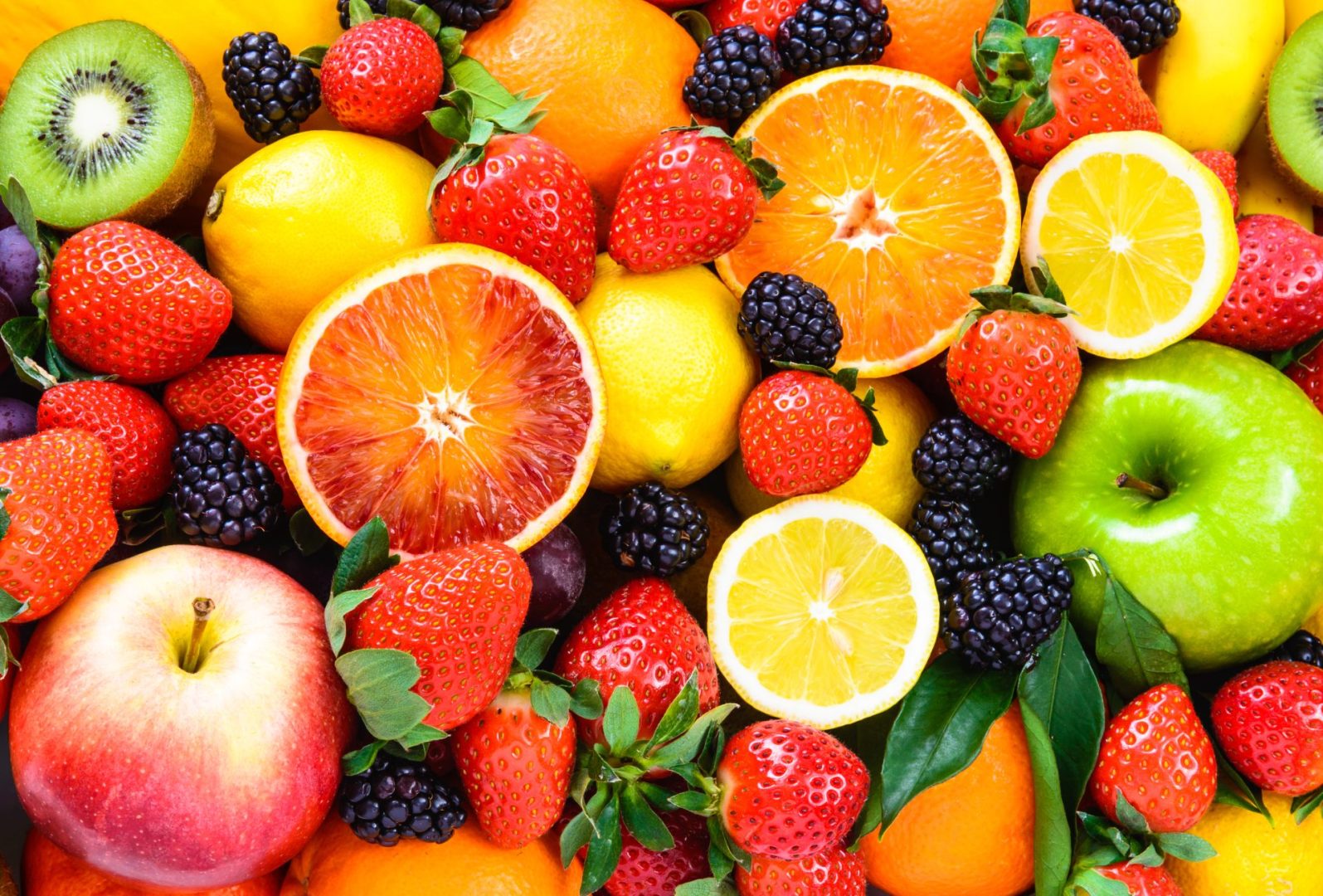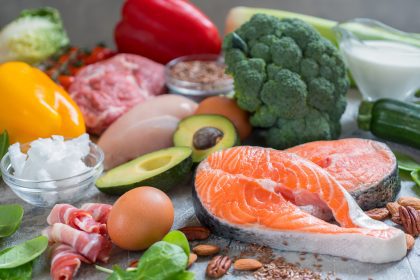Let’s face it. Your digestive system puts up with a lot. Processed foods, stress, irregular eating schedules, and that third cup of coffee you know you shouldn’t have had. It’s no wonder so many of us struggle with bloating, constipation, and that general “something’s not right” feeling after meals.
But what if the solution isn’t another pricy probiotic or elimination diet? What if the answer has been hanging out in the produce section all along, vibrant, delicious, and shockingly affordable?
The forgotten healing power hiding in plain sight
Fruits have been nature’s digestive medicine for millennia, yet somehow we’ve forgotten their power in our rush toward manufactured solutions. The right fruits work in multiple ways to heal and support your digestive system from top to bottom.
Unlike single-action supplements, fruits contain complex combinations of fiber, enzymes, water, and phytonutrients that work synergistically to improve digestion. They don’t just address symptoms but help restore proper function to your entire digestive tract.
Even more impressive is how quickly they work. While gut healing is a journey, many people notice improvements in digestion within days of adding the right fruits to their diet. Your body recognizes these natural foods and knows exactly what to do with them.
Why papaya might be your digestive system’s new best friend
This tropical treasure contains papain, a digestive enzyme so powerful it’s used commercially as a meat tenderizer. When you eat papaya, especially slightly unripe papaya, these enzymes help break down protein-heavy meals and reduce the workload on your own digestive system.
Beyond enzymes, papaya delivers soluble fiber that feeds beneficial gut bacteria while helping move waste smoothly through your intestines. The seeds, though bitter, contain compounds that may help eliminate intestinal parasites when consumed in small amounts.
For maximum digestive benefit, try eating a few pieces of papaya 15-30 minutes before protein-heavy meals. The enzymes will start working immediately, preparing your system for more efficient digestion and reducing post-meal bloating.
The vibrant orange color signals papaya’s high beta-carotene content, an antioxidant that helps heal the digestive tract lining. This makes papaya particularly helpful if you’re recovering from digestive distress or inflammation.
The unexpected miracle of everyday pears
Don’t let their humble appearance fool you. Pears are digestive powerhouses hiding in plain sight. They contain a unique type of soluble fiber called pectin that acts as a prebiotic, feeding your good gut bacteria while helping to sweep toxins from your digestive tract.
What makes pears special is their unique fiber composition. Their mild laxative effect is gentle enough for everyone from infants to the elderly, making them one of the safest natural remedies for occasional constipation.
The grainy texture you feel when eating pears comes from stone cells, which add beneficial insoluble fiber that adds bulk to waste, making elimination easier and more complete. This combination of soluble and insoluble fiber is digestive gold.
For those with sensitive systems, pears are less likely to cause gas and bloating than many other fruits. They’re naturally low in fermentable carbohydrates that can trigger symptoms in some people with irritable bowel syndrome.
Why your microbiome is crying out for berries
Berries might be small, but they deliver outsized benefits for digestive health. Raspberries, blackberries, and strawberries contain some of the highest fiber content per calorie of any food, with much of it in forms particularly beneficial for gut bacteria.
The tiny seeds in berries provide a type of fiber that acts like gentle internal scrubbers, helping to keep your intestinal walls clean without irritation. Meanwhile, the water and soluble fiber create a gel-like substance that helps waste move smoothly through your system.
Perhaps most impressive is the polyphenol content in berries. These plant compounds travel largely undigested to your lower intestine, where they become powerful fuel for beneficial bacteria. As these bacteria metabolize polyphenols, they produce compounds that reduce inflammation throughout your digestive tract.
Regular berry consumption has been linked to greater microbial diversity in the gut, a key marker of digestive health. Even better, freezing berries doesn’t diminish these benefits, making them an accessible year-round option for gut health.
The surprising digestive hero nobody talks about
Kiwi deserves far more recognition in the digestive health world than it receives. This fuzzy little fruit contains actinidin, a unique enzyme that helps break down protein much like papaya does, but with a different mechanism that works in a wider pH range.
What makes kiwi special is its balanced approach to digestive health. It addresses both common extremes of digestive distress. For those dealing with constipation, kiwi’s combination of fiber and natural laxative compounds gently restores normal function. For those with looser stools, kiwi’s soluble fiber helps absorb excess water and add structure.
Two kiwis daily have been shown in clinical studies to improve constipation symptoms faster than many fiber supplements, without the gas and bloating those supplements can sometimes cause. The effect is so reliable that some healthcare providers now recommend kiwi before turning to medications for mild constipation.
The tiny black seeds in kiwi provide a gut-cleansing effect similar to chia seeds but without needing special preparation. Simply eating the fruit whole delivers these benefits automatically.
How pineapple makes digestion a breeze
The tropical flavor of pineapple comes with a digestive enzyme called bromelain that specializes in breaking down proteins. While cooking deactivates most food enzymes, bromelain remains partially active even after light cooking, making pineapple versatile for digestive support.
Bromelain doesn’t just help digest your food. It also has anti-inflammatory properties that can soothe an irritated digestive tract. This dual action makes pineapple particularly valuable if you’re recovering from digestive distress.
Fresh pineapple juice, consumed 30 minutes before meals, can significantly reduce bloating and indigestion, especially after protein-rich foods. The natural sweetness makes this an easy habit to maintain, unlike many digestive remedies.
Beyond enzymes, pineapple provides manganese, a mineral essential for digestive enzyme production within your own body. This creates a beneficial cycle where pineapple both provides external enzymes and helps your body produce more of its own.
The right way to use fruit for digestive healing
Timing matters when using fruits for digestive health. Enzyme-rich fruits like papaya and pineapple work best when eaten 15-30 minutes before meals. Fiber-rich fruits like berries, apples, and pears are most beneficial when consumed as part of meals or as stand-alone snacks.
Start slowly if you’re not used to eating much fruit. Your gut microbiome needs time to adjust to increased fiber intake. Begin with small portions and gradually increase to avoid temporary gas and bloating that can come with sudden dietary changes.
Ripeness affects digestive benefits. Slightly underripe bananas contain resistant starch that feeds beneficial bacteria, while fully ripe bananas are easier to digest for sensitive stomachs. Experiment to find what works best for your unique system.
Remember that whole fruits outperform juice for digestive health. The intact fiber is essential for many of the benefits. If you do choose juice, look for varieties with pulp included, and consider adding a fiber source to compensate for what’s lost in processing.
The bottom line on fruit and your digestion
The most effective solutions are often the simplest. Adding a variety of digestion-supporting fruits to your daily routine requires no special knowledge, equipment, or elaborate preparation. Nature has already done the hard work of creating perfect packages of digestive support.
Your digestive system influences everything from your immune function to your mood. By nurturing it with the right fruits, you’re not just addressing uncomfortable symptoms but potentially improving your overall health in ways that extend far beyond digestion.
The next time your gut gives you trouble, consider reaching for nature’s medicine before anything manufactured. Your digestive system evolved with these foods, recognizes them instantly, and knows exactly how to use them for healing. That’s a power no lab can replicate.














